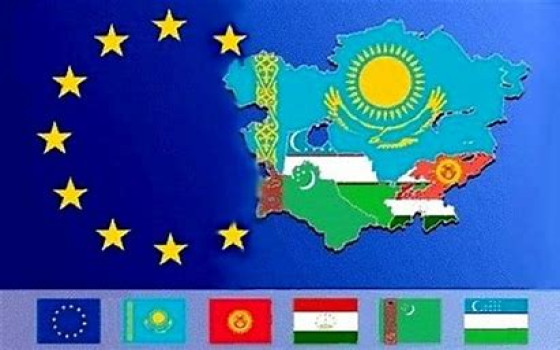
The first-ever summit between EU and Central Asian leaders will discuss security challenges, trade and investment relations, and energy, and will participate in the Samarkand International Climate Forum.

- Europe and Arabs
- Saturday , 29 March 2025 10:36 AM GMT
Brussels: Europe and the Arabs
The European Council in Brussels announced that Antonio Costa, President of the Council of the European Union, will visit Samarkand, the capital of Uzbekistan, next week to represent the European Union, accompanied by European Commission President Ursula von der Leyen, at the EU-Central Asia Summit, which will be held on April 4. This will be the first leaders' summit between the EU and the five Central Asian countries: Kazakhstan, Kyrgyzstan, Tajikistan, Turkmenistan, and Uzbekistan. The intensification of high-level relations between the EU and Central Asia in recent years has highlighted the growing importance of the region for the EU. Next week's summit will focus on strengthening and deepening bilateral and regional cooperation. Discussions will be directed towards making progress on several issues of common interest, particularly multilateralism, common security challenges, trade and investment relations, participation in the Global Portal, and people-to-people contacts.
According to the EU institutions in Brussels, the meeting will be hosted by the President of Uzbekistan, Shavkat Mirziyoyev. The summit will be a key opportunity for the EU and Central Asia to highlight their geopolitical interest in strengthening bilateral relations and enhancing regional cooperation. As outlined in the objectives of the 2019 EU Strategy for Central Asia and the Joint Roadmap for Deepening EU-Central Asia Relations, adopted in 2023, the evolving relations between the EU and Central Asia have gained increasing strategic importance over the years.
In this context, during the summit, leaders will discuss areas of mutual cooperation, such as:
Strengthening multilateral cooperation
Addressing common security challenges
Strengthening economic, trade, and investment relations
Energy integration, a climate-neutral economy, connectivity within the Global Gateway, and cooperation in the green transformation
Promoting people-to-people and mobility connectivity
The leaders are expected to issue a joint statement at the conclusion of the summit.
Presidents Costa and von der Leyen will also participate in the opening session of the Samarkand International Climate Forum. The Forum brings together world leaders, policymakers, climate experts, and activists, providing a high-level platform to address regional and global threats posed by climate change and to reaffirm the collective commitment to the green transformation and sustainable development.
EU-Central Asia Relations
In recent years, high-level relations between the EU and Central Asia have intensified. Two leader-level meetings were held in October 2022 in Kazakhstan and in June 2023 in Kyrgyzstan, in addition to numerous ministerial-level discussions. A joint roadmap was developed on October 23, 2023, to deepen relations between the two regions through dialogue and practical cooperation. The summit is preceded by the 20th EU-Central Asia Ministerial Meeting, held on 27 March 2025 in Ashgabat, Turkmenistan.
The EU Strategy for Central Asia was first adopted in 2007 and updated in 2019. This strategy highlights the region's growing strategic importance and aims to foster a stronger partnership with Central Asian countries to enable them to develop into a sustainable, resilient, prosperous, and closely interconnected economic and political space.
Trade
The EU is the region's second-largest trading partner (22.6% of total foreign trade in 2023) and its largest investor, with over 40% of its investments in the region originating from the EU. To strengthen bilateral relations, the EU has negotiated Enhanced Partnership and Cooperation Agreements with all Central Asian countries except Turkmenistan. Three of the five Central Asian countries (Kyrgyzstan, Tajikistan, and Uzbekistan) benefit from facilitated access to the European Union market through the Generalized System of Preferences (GSP), which eliminates import duties on products entering the EU market from vulnerable developing countries. As upper-middle-income economies, Kazakhstan and Turkmenistan do not benefit from the GSP.












No Comments Found